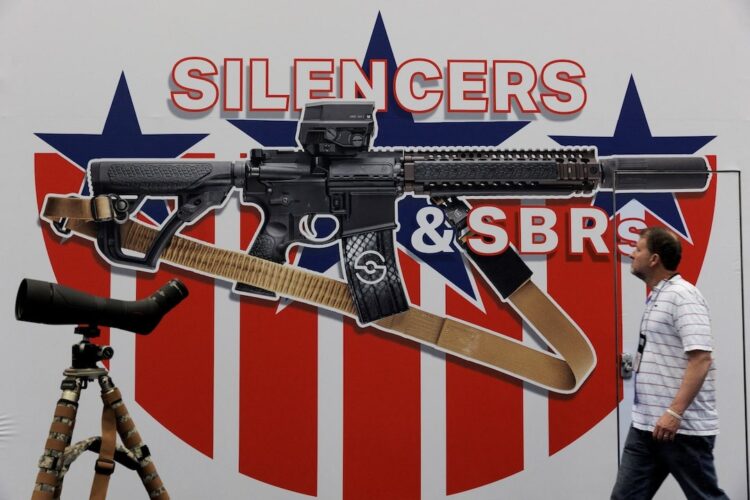In a significant legal victory for the National Rifle Association (NRA), the U.S. Supreme Court on Thursday unanimously overturned a lower court’s decision dismissing the gun rights group’s 2018 lawsuit against Maria Vullo, former superintendent of New York’s Department of Financial Services.
The lawsuit alleges that Vullo overstepped her regulatory authority by urging financial institutions to sever ties with the NRA, infringing on the organization’s First Amendment rights to free speech.
This high-profile case emanates from the aftermath of the 2018 mass shooting at Marjory Stoneman Douglas High School in Parkland, Florida, where a 19-year-old armed with an AR-15 rifle tragically killed 17 people. In response to this massacre, Vullo called on banks and insurers to evaluate the “reputational risks” associated with providing services to gun rights groups. This move by Vullo, according to the NRA, was an attempt to stifle their advocacy by imposing what they term an “implicit censorship regime.”
The core issue in the NRA v. Vullo case was whether Vullo’s actions constituted a coercive abuse of her regulatory power, effectively violating the NRA’s First Amendment protections against governmental restrictions on speech.
The NRA’s legal challenge asserts that Vullo’s directives led to a “blacklisting” campaign, threatening the organization’s ability to access basic financial services essential for its advocacy operations.
Vullo’s office had previously imposed hefty fines exceeding $13 million on insurers like Lloyd’s of London for their involvement in underwriting NRA-endorsed products such as “Carry Guard.” This insurance product, which provided liability coverage for firearm-related injuries, was deemed illegal under New York insurance laws.
This punitive measure was cited by the NRA as a further example of retaliatory actions intended to cripple their functioning and deter their advocacy for gun rights.
Despite these contentious measures, the NRA found an unexpected ally in the Biden administration. While President Joe Biden has often described gun violence as a national embarrassment and pushed for stricter gun control, his administration supported the NRA’s right to have its claims assessed impartially, arguing that a distinction must be maintained between permissible governmental critique and outright coercion.
The Supreme Court’s unanimous decision to revive the lawsuit is particularly notable, not only for its implications on the NRA’s ongoing operations but also for the broader dialogue surrounding free speech and regulatory authority. The ruling sends a clear message about the limits of governmental power in curbing speech, emphasizing that even unpopular voices must be protected from undue governmental suppression.
As the case returns to the lower courts for further examination, it opens up a potentially lengthy legal battle that will continue to test the boundaries of First Amendment rights. The decision to revive the NRA’s lawsuit does not imply a final victory for the gun rights group but rather ensures that their grievances receive a fair hearing.
This case is among several involving the NRA that have reached the Supreme Court, reflecting the organization’s proactive legal strategy and its central role in America’s polarized gun rights debate. The NRA’s consistent legal challenges have also influenced broader national policies and legislative discussions on gun control and rights.
The implications of this ruling extend beyond the immediate legal parties involved. It underscores the ongoing national divide over firearms and the judicial interpretations of constitutional rights. As the country grapples with frequent mass shootings and debates over gun control, the Supreme Court’s decisions in cases like NRA v. Vullo are closely watched for their potential to influence public policy and societal norms.
Moreover, the timing of the Supreme Court’s decision coincides with its pending rulings on other major gun rights cases, including challenges to the federal ban on “bump stocks” and restrictions on gun ownership for individuals under domestic violence restraining orders.
These forthcoming decisions are expected further to clarify the scope of gun rights under U.S. law, underscoring the Court’s pivotal role in shaping the legal landscape surrounding one of America’s most contentious issues.
As the legal proceedings continue, the NRA’s lawsuit against Maria Vullo will remain a focal point in the national conversation about the balance between regulatory oversight and safeguarding constitutional freedoms.
This case highlights the complex interplay between government authority and individual rights and sets the stage for future legal interpretations of how those rights are protected or limited by governmental actions.










